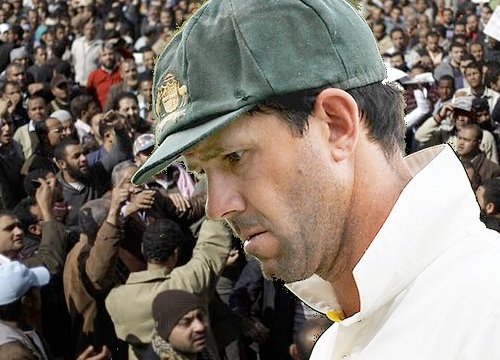I’ve been feeling a bit ambivalent about the latest Wikileaks kerfuffle — not an unusual reaction, I suspect.
Because I don’t think there’s anything inherently sinister or unreasonable about the fact that diplomats want to be able to say things in private that they wouldn’t say in public. And quite apart from the Swedish sexual assault allegations, Julian Assange comes across as a bit of a dick: arrogant and egomaniacal.
And I’m a bit creeped out by the self-righteous certainty of internet evangelists for the idea that information wants to be free: whether it’s the anti-copyright campaigners, or Mark Zuckerberg with his high-handed attitude to other people’s privacy, or Julian Assange. Although of the two, a wish to abolish government secrecy is easier to defend than a wish to abolish personal privacy.
So for those reasons I’m a bit sceptical. And yet…
Someone once jokingly defended fox hunting to me on the basis that ‘it keeps the foxes on their toes’. And I feel that way about governments. Sure, there are good reasons why they want secrecy… but I don’t want them to get too complacent about it. I don’t want them to assume they can do things that no-one will ever know about.
Some of my feelings about it were crystallised by this excellent blog post — essay, really — by Aaron Bady, which concentrates on the role of diplomacy in East Timor, and how the State Department’s eventual backing for UN peacekeepers in East Timor only came after spending decades providing military support to the murderous and oppressive Indonesian regime.
Because despite politicians’ high-minded rhetoric, when it comes to foreign policy human rights is always the bottom priority. Our governments will prop up almost any regime, however brutally oppressive and violent, for almost any reason. They — we — do it to ensure access to resources, whether it’s oil or something else; or because the enemy of our enemy is our friend; or because they may be a bastard, but at least they’re OUR bastard; or because we want to stay on the right side of the Americans; or for reasons of ‘stability’; or because they are valuable trade partners; or because we want somewhere to put our air bases.
And the thing is, none of those are stupid reasons. Take oil. If we — the West, the wider global economy — lost access to Middle Eastern oil, we would be completely fucked. Our countries would grind to a halt extremely quickly. We have a direct strategic interest in the politics of the region. Is that sufficient to justify the propping up of the corrupt, hypocritical Saudi royal family, even as they bankroll Islamist terrorism and torture their own people? I think that’s a genuinely difficult question to answer.
But politicians don’t even want to have the discussion. They would rather treat us like idiot children, not worldly enough to deal with these kind of grown-up problems. They can’t keep the really big stuff secret, but they certainly do their best to avoid drawing attention to it, and to avoid talking about it. And you can bet your life that they do keep things secret when they can get away with it.
So let’s keep our politicians and civil servants on their toes. Let’s make them stand up and actually justify their actions.
The other aspect which has been surprising and thought-provoking is the government reaction to the leaks. It’s worth pointing out at this point that, despite a lot of bluster, no-one at Wikileaks has been charged with any crimes; no-one has come up with any convincing argument that a crime has been committed. Certainly not under US law, since they have that admirable constitutional protection of free speech. And yet one by one, Amazon, Paypal, Visa and Mastercard have rolled over under government pressure and denied service to a legal journalistic enterprise exercising free speech. Are the Guardian, the New York Times and Der Spiegel next?
I don’t think I am, generally, someone who wants to shake up the global political establishment just for the sake of it. I don’t have that anarchist temperament. But when I see politicians reacting with such panic and hysteria to the threat of a little daylight, and when I look around the world and consider how they’ve been doing when left to their own devices, I tend to think, yeah, let’s have it. Who knows, let’s look on the bright side; maybe this is the birth of a new golden age of journalism and of newfound accountability in government and commerce. And maybe it’s just a storm in a teacup. But I doubt it’s the end of the world. So let’s try it. See what happens.
